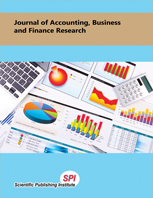Fiscal Policy and Stock Market Efficiency in the USA: An ARDL Bounds Testing Approach
DOI:
https://doi.org/10.20448/2002.92.73.81Keywords:
ARDL, Stock market, Market efficiency, Fiscal policy, US.Abstract
The basic aim of this study is to evaluate the market efficiency hypothesis by using the fiscal policy information implemented in the context of the New York Stock Exchange. In order to take into account that the macroeconomic data of a developed country like USA has a limited size and may be governed by structural breaks and inconsistencies this paper proposed the adoption of the ARDL bounds testing approaching in order to effectively evaluate the relationship between the lagged macroeconomic variables and the stock market returns. Also, the use of this technique allows for the evaluation of both short run and long run relationships and associations among the variables. The study uses data from 2008-2018 to investigate the efficiency of the stock market. The results suggest that in the long run the stock prices fully reflect the information issued by the fiscal policy and reflect on the past activities of the fiscal policy as well. In the short run however, the New York stock exchange index S&P 500 reacts differently. The NYSE stock index was found to only efficiently reflect the unexpected news from the fiscal policy. Moreover, the results also show that the prices in terms of oil, production and consumer prices were also found to be correlated with the stock prices. The increase in the consumer prices or inflation and average economic translates in increased profitability for the firms and the increase in the oil prices seems to have a negative impact on the firm profitability


